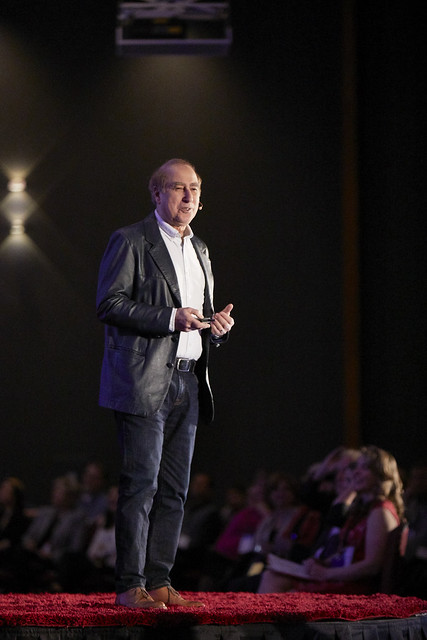
The AI revolution is currently on its way, creating numerous challenges and opportunities for both organizations and employees alike. This leads to a compelling and important question: How can we thrive in this new industrial revolution? To help find the answer, I recently spoke with Eli Fathi, CEO of MindBridge Ai, an award-winning audit solutions firm.
What attracted you to an opportunity in the AI universe?
AI represents the fourth industrial revolution, which offers unlimited potential and growth, and is very exciting. Andrew Ng, the former chief scientist at Baidu, compared the impact of AI on the world to the impact of electricity. AI is like a runaway train with no brakes and continuous acceleration, riding the wave of technological advancements that continues to advance at breakneck speed. Society is riding this wave and will end up in a situation, called singularity, where humans and machines are on equal footing. When that’s the case, a machine can perform and think like a human. At this point, all bets are off in terms of what will happen next, which is scary in one way but very attractive as there are many opportunities to make a positive difference in the world.
What are you hearing from chief executives and leaders of organizations that leverage AI in terms of the tremendous potential and the metaphor that it’s a runaway train?
If you consider all the other industrial revolutions, there was always hope and fear. The same thing is happening with AI, in that it can have a positive impact on society, in applications such as healthcare, or it can offer challenges, such as people using deepfake videos for misinformation. Historically, there has been a great fear of “technology unemployment,”, which has been proven incorrect. The reality is that new job creation far exceeded job loss in all three previous industrial revolutions. The recent study by Edelman found that both executives and the public say that AI is going to favor the rich and hurt the poor. This means that AI could be divisive if not positioned properly, causing concerns among business leaders and the public.
Although AI has been around for over 50 years organizations don’t have a long history with it and adoption lags because most companies are still in the midst of their digital transformation. As one important example, many organizations have built up large databases of both internally and externally collected information. Unfortunately, these diverse systems are generally not connected to each other and rarely use the same format. Furthermore, since AI is a very nascent technology, C-suite executives may not have all the knowledge they need to make decisions. These factors make the short-term adoption of AI solutions challenging.
What are some of the fears around AI and its impact on society?
If you look at the statistics, there are roughly 360 million manufacturing jobs in the world and every time a robot is introduced, it replaces 5.6 million people. If you assume that 60 million robots are being utilized, the potential exists for all manufacturing jobs to be eliminated. There are also roughly 3.6 million cashiers in North America. In 2016, Amazon introduced the “concept store”, Amazon Go, that enabled consumers to purchase items without visiting a checkout counter. What happens to cashiers when we don’t need humans to run the cash registers?
Whenever a component of new technology is introduced, there is also a cascading effect on secondary jobs. Right now, although wages in the long-haul transportation industry are relatively good, we know driverless vehicles are coming soon. How do you train truck drivers to become data scientists and will their salaries remain at the same level? How many jobs associated with body shops, tow trucks, hospitals, and traffic enforcement officers will be impacted when driverless cars lower or eliminate all accidents?
Another area that everyone should be concerned with is deepfake videos. Consider the situation where a deepfake video is created that shows a publicly-traded organization with either favorable or unfavorable financial performance. By the time the public realizes what’s going on, the share price of that organization may be severely impacted. It’s a disruption of the way the world works today, and how can we stop that?
Ultimately, we can’t make judgements on whether AI is good or bad. All stakeholders are concerned, including the public, governments, and enterprises. It’s up to society to determine whether AI will bring a utopia or dystopia and right now, it’s too early to predict.
What skills do you think leaders need to prepare their organizations for an AI-based future?
Regardless of the future of AI, leaders need to prepare themselves and their organizations to manage it. There are two types of organizations, the producers that are creating AI systems and the consumers that are leveraging the technology. On the producer side, like our company MindBridge Ai, we need data scientists, data engineers, and software developers to acquire, shape, prepare, analyze, and present data to our end users.
AI-based systems are here to stay, and the C-suite of the consumer organizations need to embrace and leverage the new technology to remain competitive. Every white-collar profession is undergoing some degree of AI disruption, including healthcare, law, and transportation. AI is not to be feared as it’s going to automate certain functions to help the organization become more efficient.
What advice would you have for aspiring leaders in terms of preparing for AI in terms of now and the future?
Don’t fear AI, embrace it. AI is and will impact our day-to-day lives so embrace it is better to be an early adopter and make it a positive future.
For business leaders and executives, empathy is essential. As we move to more AI systems, there are some knowns and some unknowns, creating fears about jobs and pressure on individuals. The public is scared, so being an empathic leader ensures we can more effectively manage and reduce their fear.
What suggestions would you have for leaders to be more empathetic?
When you talk to an individual or a team, be fully present. Don’t be distracted by your phone. Leave your computer behind. A lot of leaders now say they don’t have the time but by being there, it will go a long way towards showing understanding and compassion. People can look into your eyes and you know that you are there for them.
Empathy is going to be king in the age of AI because people are looking for assurance that technology is not going to displace or replace them. Although it may sound odd to me, I believe that empathy and AI are essential partners in this revolution.

